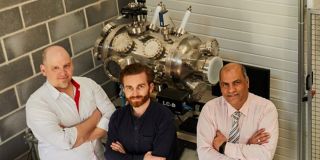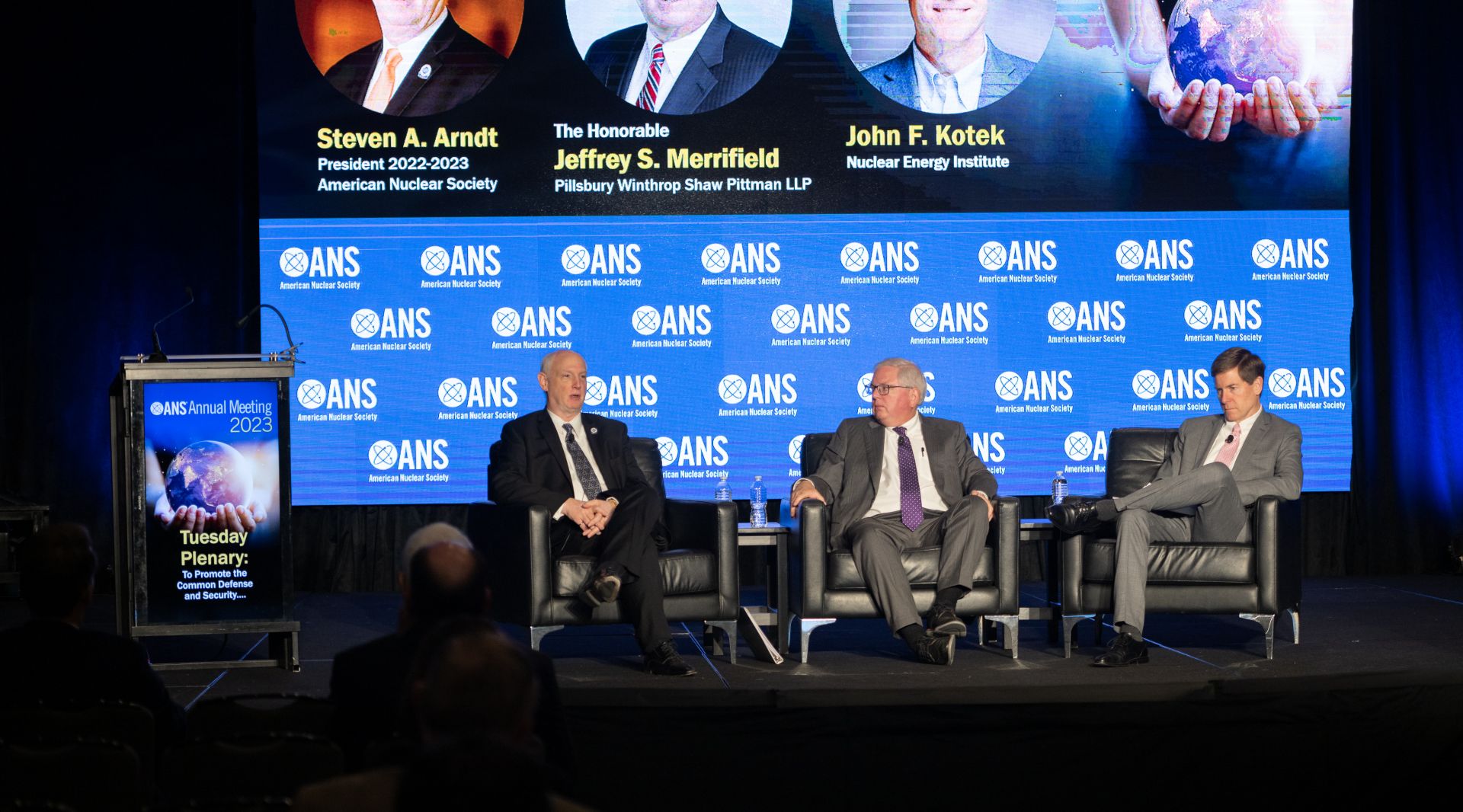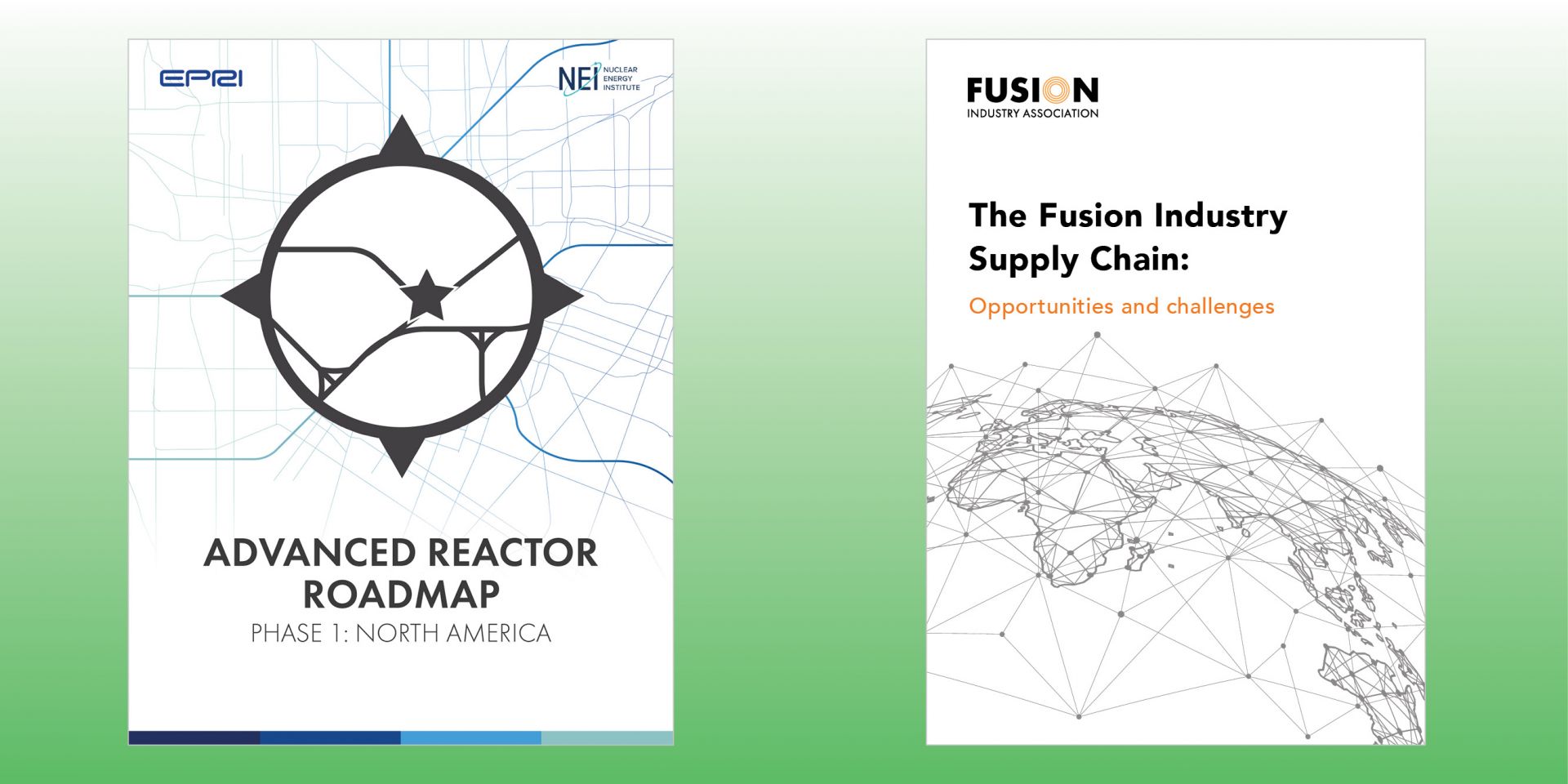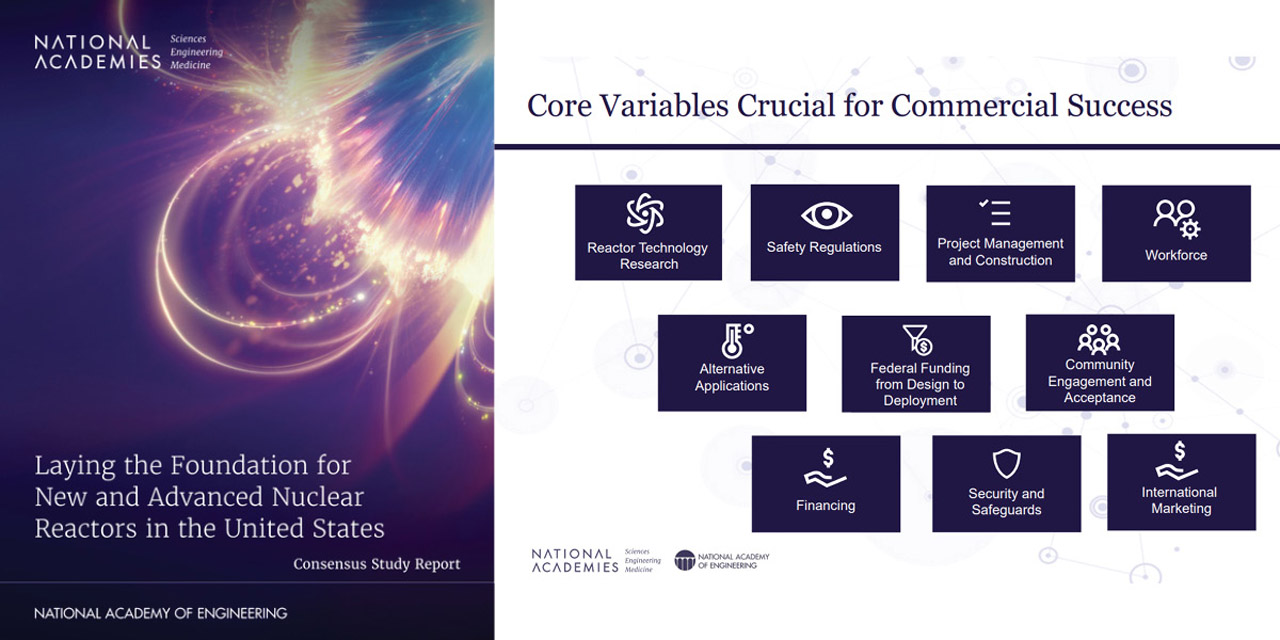Pictured, from left, are Steve Nesbit, Christina Leggett, John Kessler, Paul Dickman, John Mattingly, and Craig Hansen. Edwin Lyman, who joined the panel remotely, is not pictured.
Advanced reactors may be key to a clean energy future, but to prove it they’re going to need fuel—and that fuel will be derived from limited uranium resources and managed throughout the nuclear fuel cycle, whether that cycle is open (like the current fuel cycle) or closed (with reprocessing). Six panelists convened on June 12 during the Annual Meeting of the American Nuclear Society for the executive session “Merits and Viability of Advanced Nuclear Fuel Cycles: A Discussion with the National Academies.” They discussed those fuel cycles and the findings of a National Academies of Science, Engineering, and Medicine (NASEM) consensus committee released as a draft report in November 2022 and published earlier this year.
ANS immediate past president Steven Arndt, Jeffrey Merrifield, and John Kotek on stage at the ANS annual meeting President's Plenary.
At the 2023 ANS Annual Meeting, Steven Arndt (as of the close of the meeting, ANS immediate past president) led a president’s session on the mission of the Nuclear Regulatory Commission—a not particularly surprising topic, given that he spent over 30 years at the agency in various roles.
This slide on the right from the consensus committee’s public briefing identifies 10 core variables that are important to the success of advanced reactor deployments. (Image: NASEM, Laying the Foundation for New and Advanced Nuclear Reactors in the United States)
Representatives of six nuclear organizations sign a declaration in Sapporo, Japan. Seated, left to right, are George Christidis (representing CNA chief executive officer John Gorman), Shiro Arai, Maria Korsnick, Tom Greatrex, Yves Desbazeille, and Sama Bilbao y León. (Photo: World Nuclear Association)
G7 governments should support life extension for today’s power reactor fleet, restart operable units, and accelerate the deployment of advanced reactors, states a joint declaration issued April 16 at the Nuclear Energy Forum, a first-of-its-kind colloquy held on the margins of the G7 Ministers’ Meeting on Climate, Energy and Environment in Sapporo, Japan.
Report author Mark Lynas and RePlanet’s Joel Scott-Halkes stand next to a canister of spent nuclear fuel at the Sizewell plant in the United Kingdom. (Photo: RePlanet)
A new report from the environmental advocacy group RePlanet makes the case for recycling used nuclear fuel for use in advanced power reactors. According to the report, What a Waste: How fast-fission power can provide clean energy from nuclear waste, by using current inventories of used fuel and depleted uranium stocks in Europe and the United Kingdom, fast breeder reactors could generate between 600 and 1,000 years of carbon-free electricity for the entire European Union.
These graphs illustrate how rapidly scaling the nuclear industrial base would enable nearer-term decarbonization and increase capital efficiency, versus a five-year delay to reach the same 200 GW deployment by 2050. (Source: DOE, Pathways to Commercial Liftoff: Advanced Nuclear, Fig. 1)
The Department of Energy released Pathways to Commercial Liftoff: Advanced Nuclear earlier this month. It is one of the first in a series of reports on clean energy technologies and the private and public investments needed to overcome hurdles to full-scale deployment. The report makes a clear case for investment in nuclear power and challenges potential investors and operators to move beyond the current “wait and see” stalemate and generate “a committed orderbook . . . for 5–10 deployments of at least one reactor design by 2025.”
Dignitaries assemble after the signing of a memorandum of agreement to help Indonesia develop a nuclear energy program. Among those at the signing were Indonesia's minister for economic affairs Airlangga Hartarto, U.S. ambassador to Indonesia Sung Y. Kim, and U.S. Department of State principal deputy assistant secretary Ann Ganzer. (Photo: State Dept./Erik A. Kurniawan)
The United States and Indonesia have announced a strategic partnership to help the latter nation develop its nuclear energy program, supporting its interest in deploying small modular reactors to meet energy security and climate goals.















